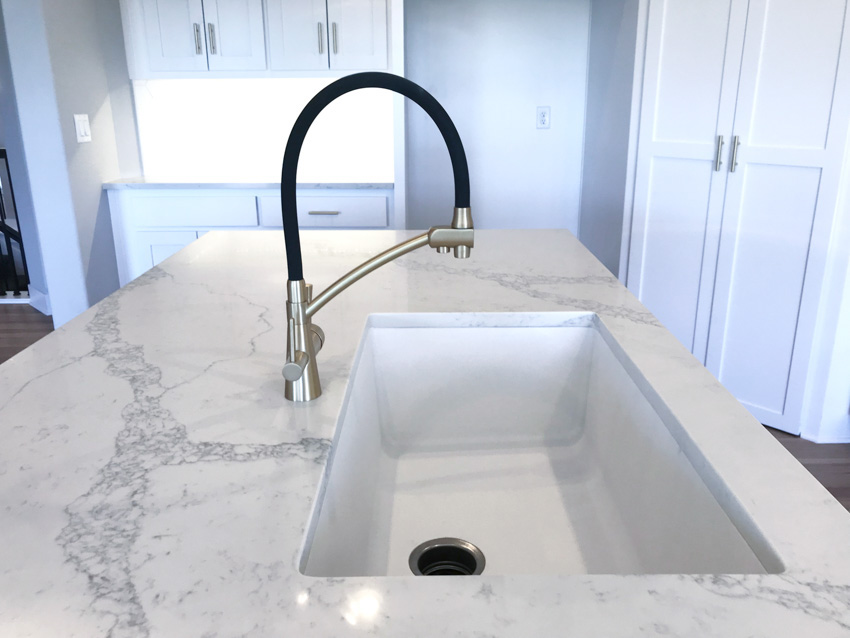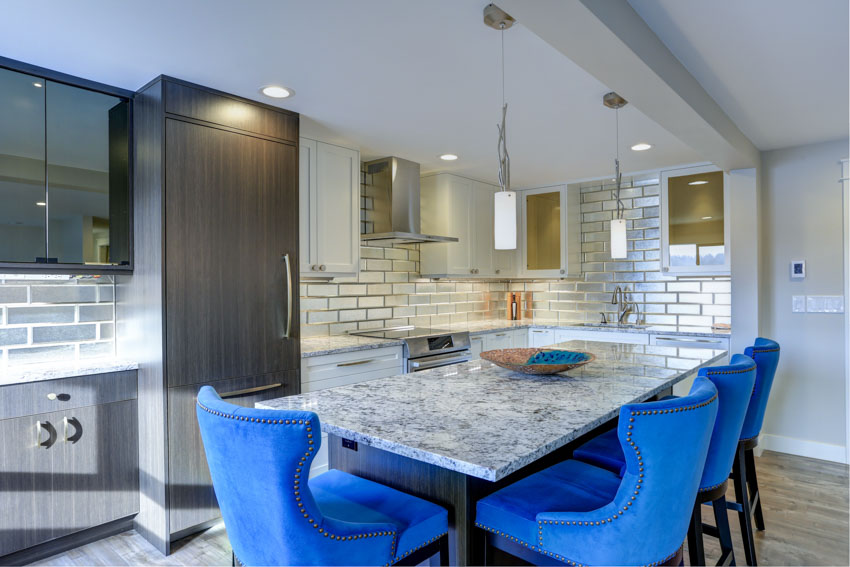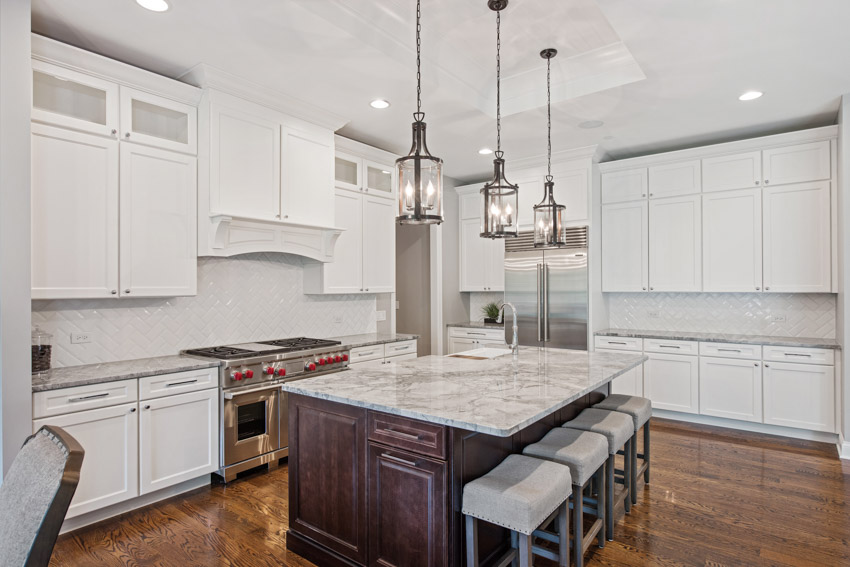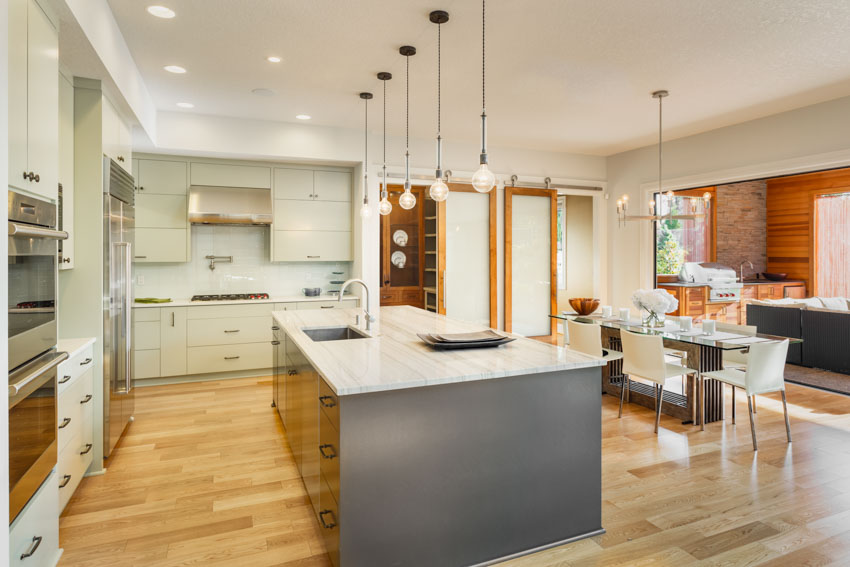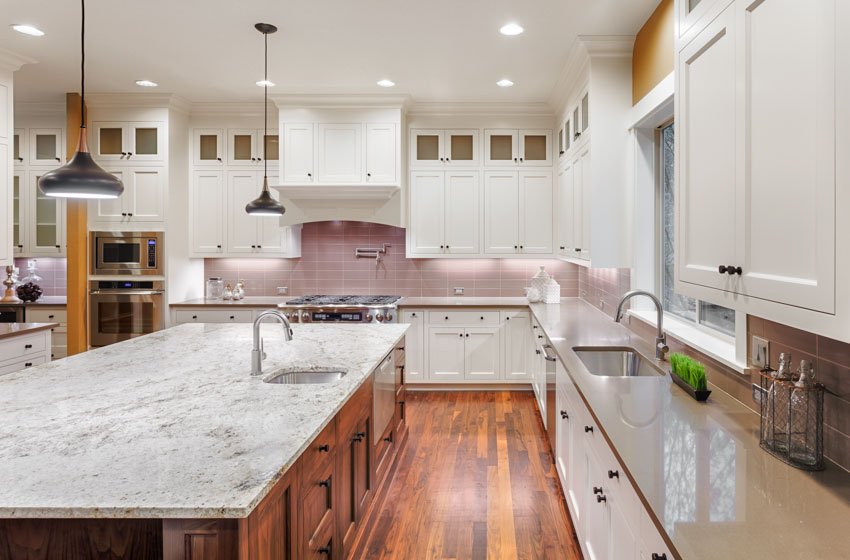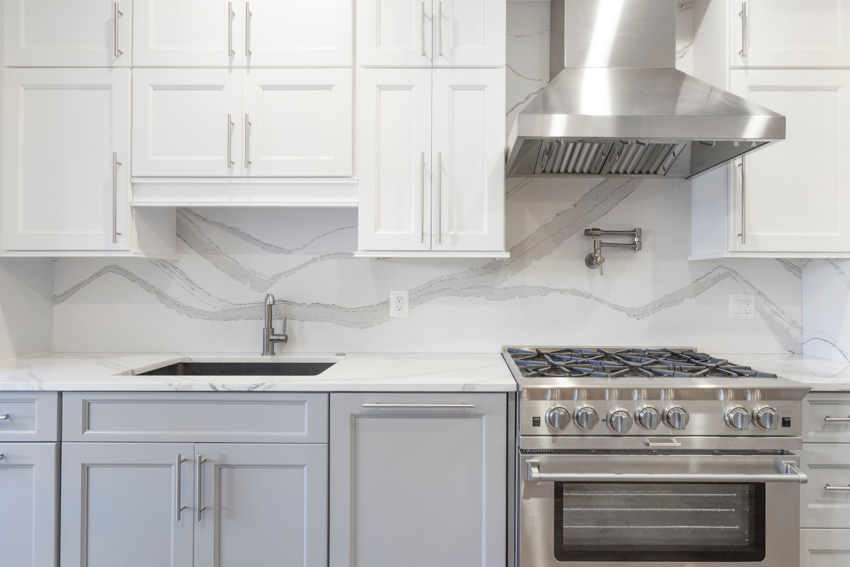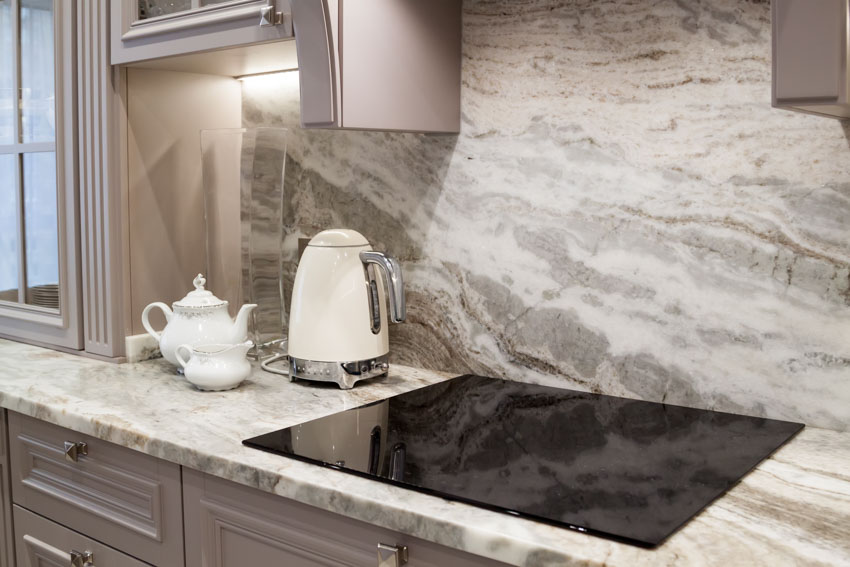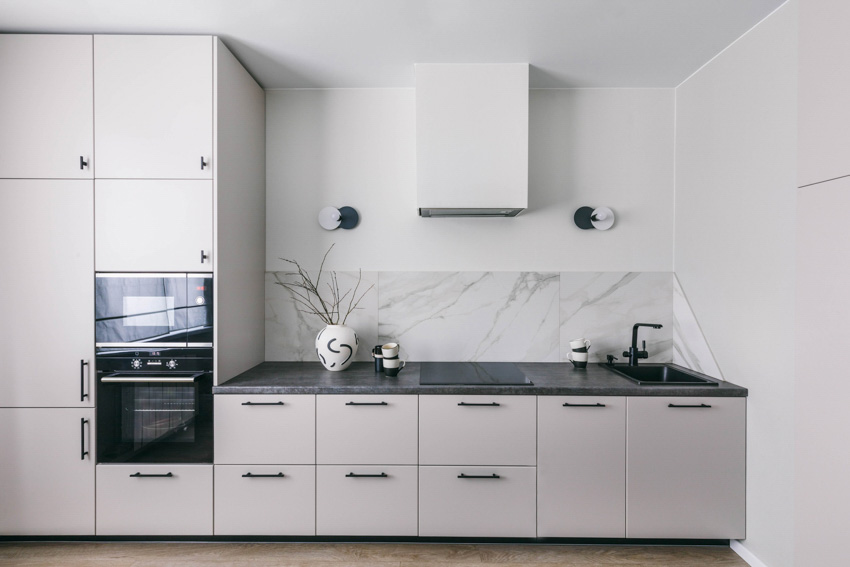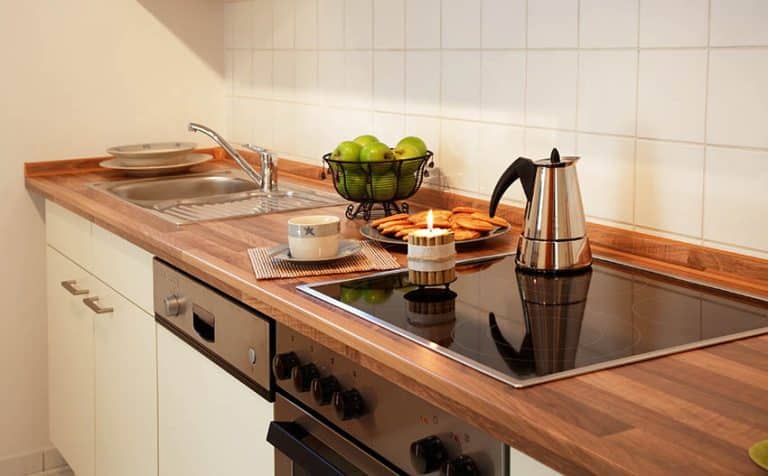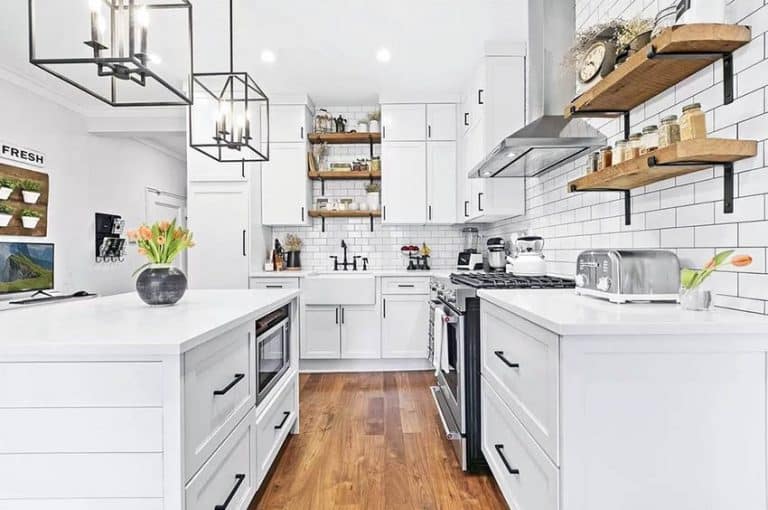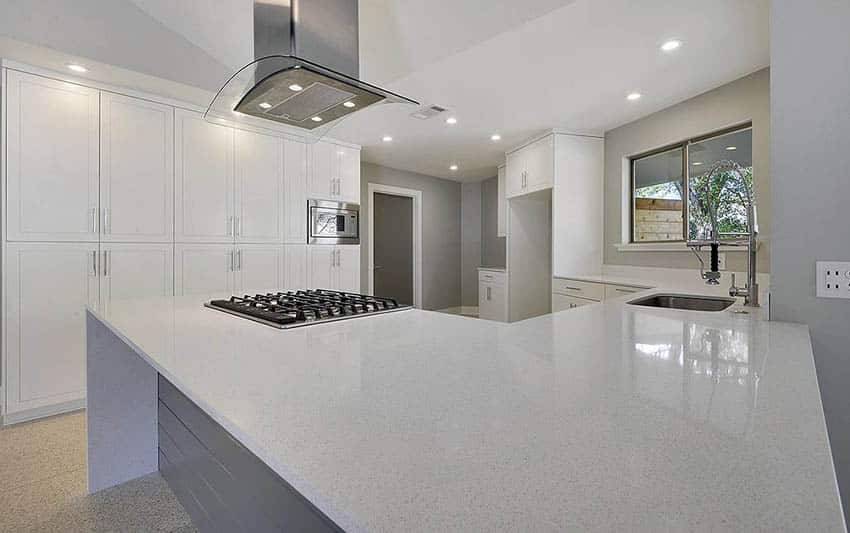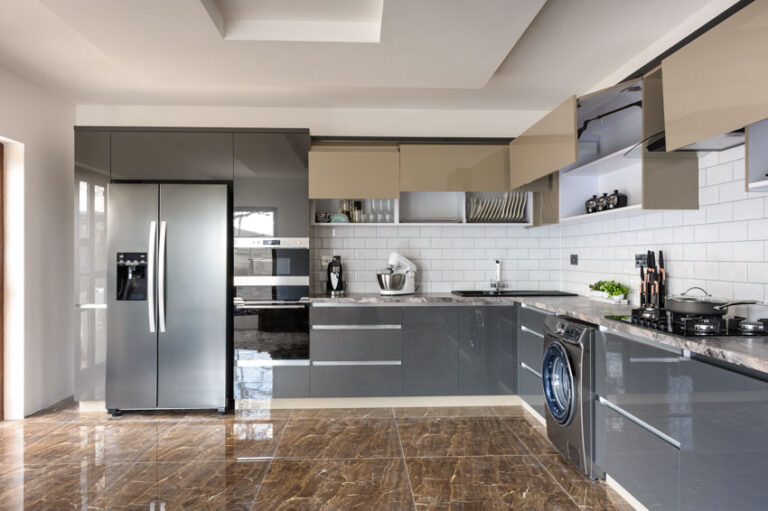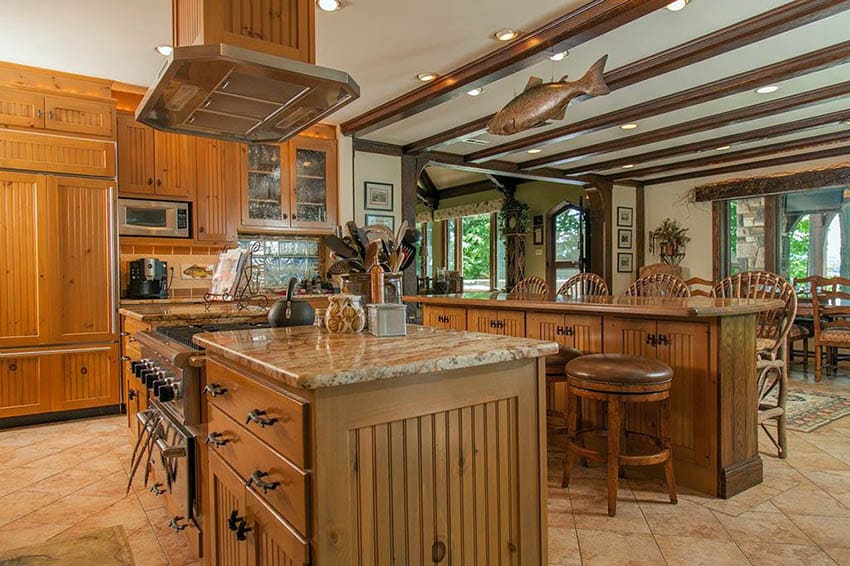Honed Quartzite Pros And Cons
There are many good reasons to install honed quartzite in your home. It’s a distinctive and attractive natural material with good functionality. This versatile option can be used in the kitchen or bathroom. It makes an excellent countertop or backsplash. These slabs and tiles are perfect for shower walls and bathroom flooring.
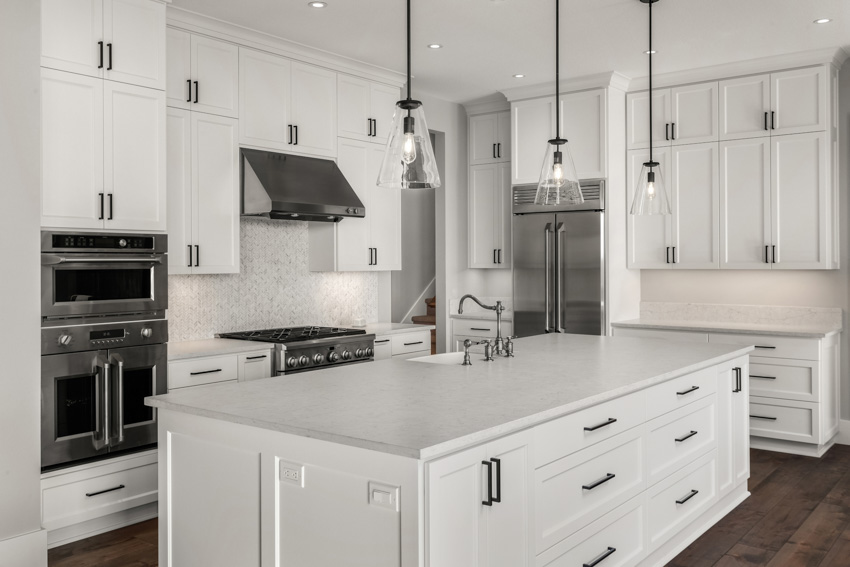
Honed quartzite has a perfectly smooth, matte surface. This understated, muted material works well in contemporary spaces but has a place in any kind of decor. Because it is a natural stone, every slab and tile is one of a kind.
What Is Honed Quartzite?
Quartzite is a natural stone that results when sandstone with a high amount of quartz is exposed to extreme pressure. Honing is a technique used to turn rough rock into a smooth, flat, even surface. When this technique is used on quartzite, the result is known as a honed finish.
The term is most often used in reference to countertops. Quartzite is a popular material for countertops. It is easier to care for than marble but has good durability like granite. You can read more about the difference between regular quartz vs quartzite here.
These types of kitchen countertops are low maintenance, do not fade with exposure to UV light, and require no special chemicals to clean. This functional and beautiful material is difficult to damage and requires sealing only once per year.
There are a few minor restrictions to consider. The material should not be used as a cutting board, as sharp knives can scratch the surface. Hot pans should never be placed directly on its surface. When properly cared for, the stone surfaces can last for many decades.
Honed Or Polished Quartzite
When selecting new countertops for your kitchen or bathroom, you will need to choose both a material and a finish. The available finishes are dependent on the material you choose. Quartzite countertops are available in a variety of finishes, with three of the most popular being honed, polished, and antiqued.
A honed finish has been ground down to a flat surface. It is not reflective or shiny, and these surfaces have a more casual, easy-going feel, and are softer to the touch.
A polished finish has not only been flattened but fine-grain abrasives and polishing pads have also been used to buff the surface into a mirror-like finish. Polished surfaces have a refined, elegant, and formal quality that elevates your living space.
Anything that interferes with the reflectiveness of the surface, such as fingerprints, smudges, or small chips, will be much more obvious on a polished surface than when honed. In general, polished stones have more vivid colors than honed stones. Any veining or pattern will be more visible with a polished finish.
Honed finishes are a better choice than polished when looking for bathroom floor tile ideas, as it is less slippery when wet.
Polished quartzite is also vulnerable to scratches and etching, while honed surfaces are resitant to this kind of damage. Both finishes need to be sealed to prevent staining. Both can be cleaned with mild detergent and water, but polished surfaces will also need to be maintained with a polishing paste.
Over time, the surface of polished finishes may become dull. When this happens, it may be necessary to call a stone professional. They have the tools to delicately refinish natural stone and return them to their original appearance.
Pros Of Honed Finish Quartzite
Durable countertop material – It is very durable and can resist most scratches or scuffs. The honing process renders it invulnerable to acids, which makes it even more durable.
Easy to clean – The stone surface is easy to clean, requiring just dish soap and water. Acidic cleaners will not harm it but should be avoided as they can weaken or dissolve sealant.
Many colors to choose from – It is available in a range of beautiful colors, and when honing is applied has a flat, muted appearance. Each piece of stone is one of a kind.
Will not fade in UV light – Its surface is very dense and resists penetration, staining, and discoloration. It will never fade in UV light. Regular sealing will prevent stains of all kinds.
Less expensive than other types of stone countertops – Best of all, honed quartzite is usually less expensive than marble, and in the same cost range as granite.
While it does represent a significant investment over laminate kitchen countertops, these counters are a beautiful product that will last for years to come.
Cons Of Honed Finish Quartzite
Not as eye-catching – Some people find the look of honed quartzite to be somewhat lackluster. For those who prefer a shinier, gleaming countertop surface, a polished finish may be the best fit.
Hard to match – While the surfaces are architecturally interesting and distinctive, it can also make it tough to match your surfaces with new material at a later date.
Can be damaged by heat and scratches – Its surfaces can be damaged by high heat or very sharp knives, so you cannot prep food directly on the countertop.
Cost is higher than other budget-friendly options – If budget is your primary concern, the cost is higher than budget-friendly materials like laminate.
Should Quartzite Be Honed?
Whether or not quartzite should be honed is a matter of personal preference. Some people prefer the shiny surface of polished stone, while others prefer a subtler mattified look.
The honing process helps the surface be resistant to damage from acidic substances. However, it also opens up the pores in the stone, making it more vulnerable to penetration and staining. If it is honed, it should be paired with an appropriate sealer.
Does This Quartzite Finish Stain?
These sealed stone surfaces should resist penetration and staining from any liquid. Unsealed finishes can become stained if exposed to acidic liquids like tomato juice, coffee, or wine for long enough. Even water can discolor an unsealed countertop.
Does Quartzite Need to Be Sealed?
It is generally recommended to seal natural stone once per year, and this recommendation would apply to honed quartzite.
Natural stone has pores that can trap liquid or oil, becoming a breeding ground for bacteria. Sealing the surface covers the pores, eliminating penetration from spills or splashes. Additionally, the surfaces that have been sealed will resist staining or discoloration.
Some honed stone surfaces are so dense that they don’t need to be resealed as often. It’s generally best to get advice from your natural stone supplier about how often to reseal or to follow the general guidance and reseal every year.
An extra incentive to sealing is that it can often enhance the look by bringing out the natural color and veining and providing a more wet look that many people find appealing.
How Do You Care For Quartzite?
Quartzite is a robust material that requires very little in the way of care and protection. With its matte finish, it resists the smudges and fingerprints that make a polished stone more time-consuming to care for.
After installation, honed quartzite should be sealed. There are two types of sealant available: impregnating and topical. Impregnating sealants penetrate below the surface to provide long-lasting protection.
Topical sealants form a barrier on top of the stone and can wear out. Care for these countertops by wiping up spills immediately. Use gentle, nonabrasive cleaners when necessary.
Use a cutting board or cutting mats to keep food off the surface and protect the quartzite from knives. Avoid placing hot pots and pans directly onto the stone.
Quartzite is such a hard, durable material that chipping and pitting are rare. In the unlikely event that chips do occur, small pieces can be reattached through the use of an adhesive.
Once every six months or so, dribble a few drops of water on the surface and let it sit for five minutes. If the water is absorbed into the stone during that time, it needs to be resealed. If the water is sitting on top, the sealant is still active.
See more related content in our article about quartzite vs marble countertops on this page.

